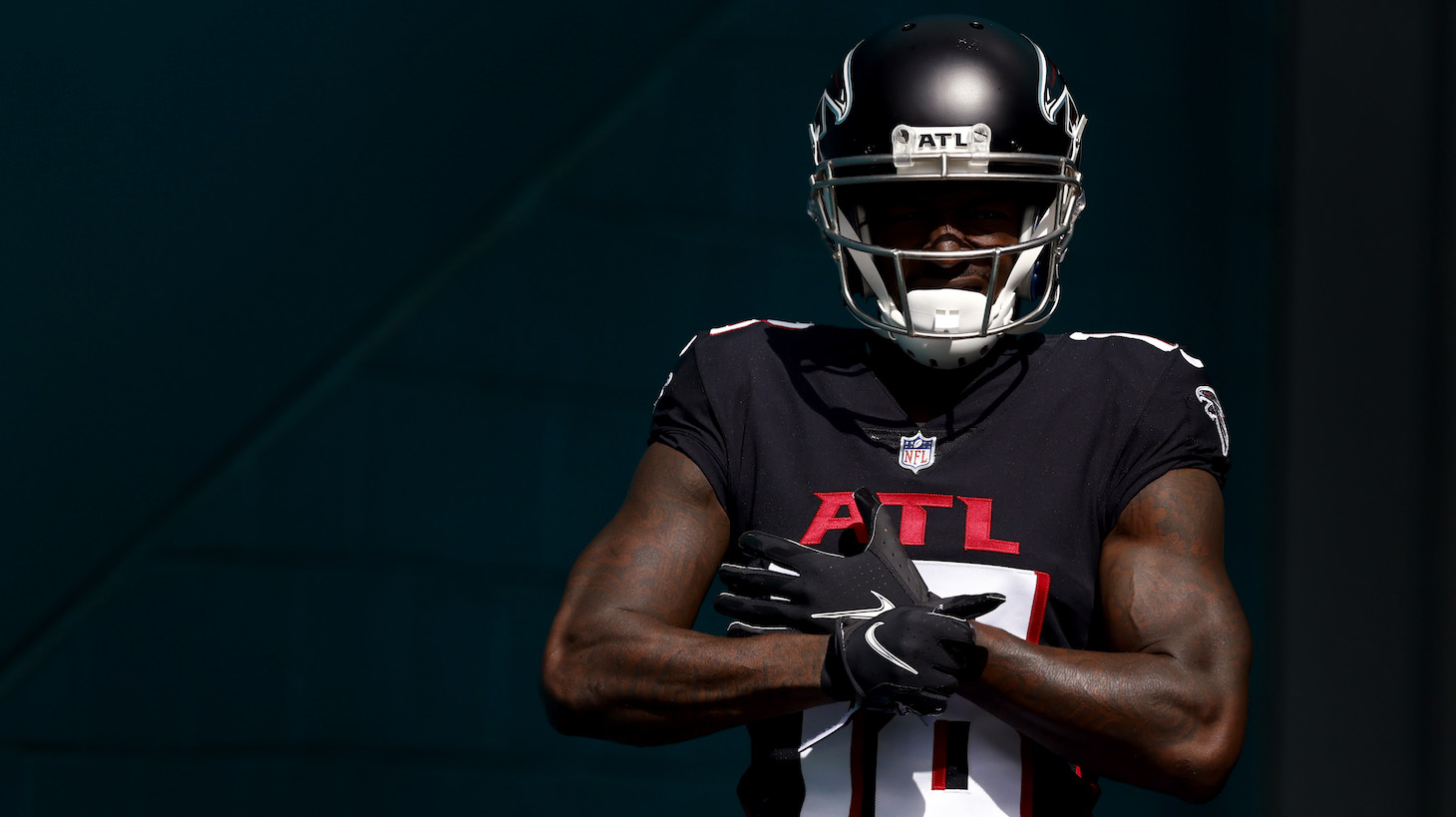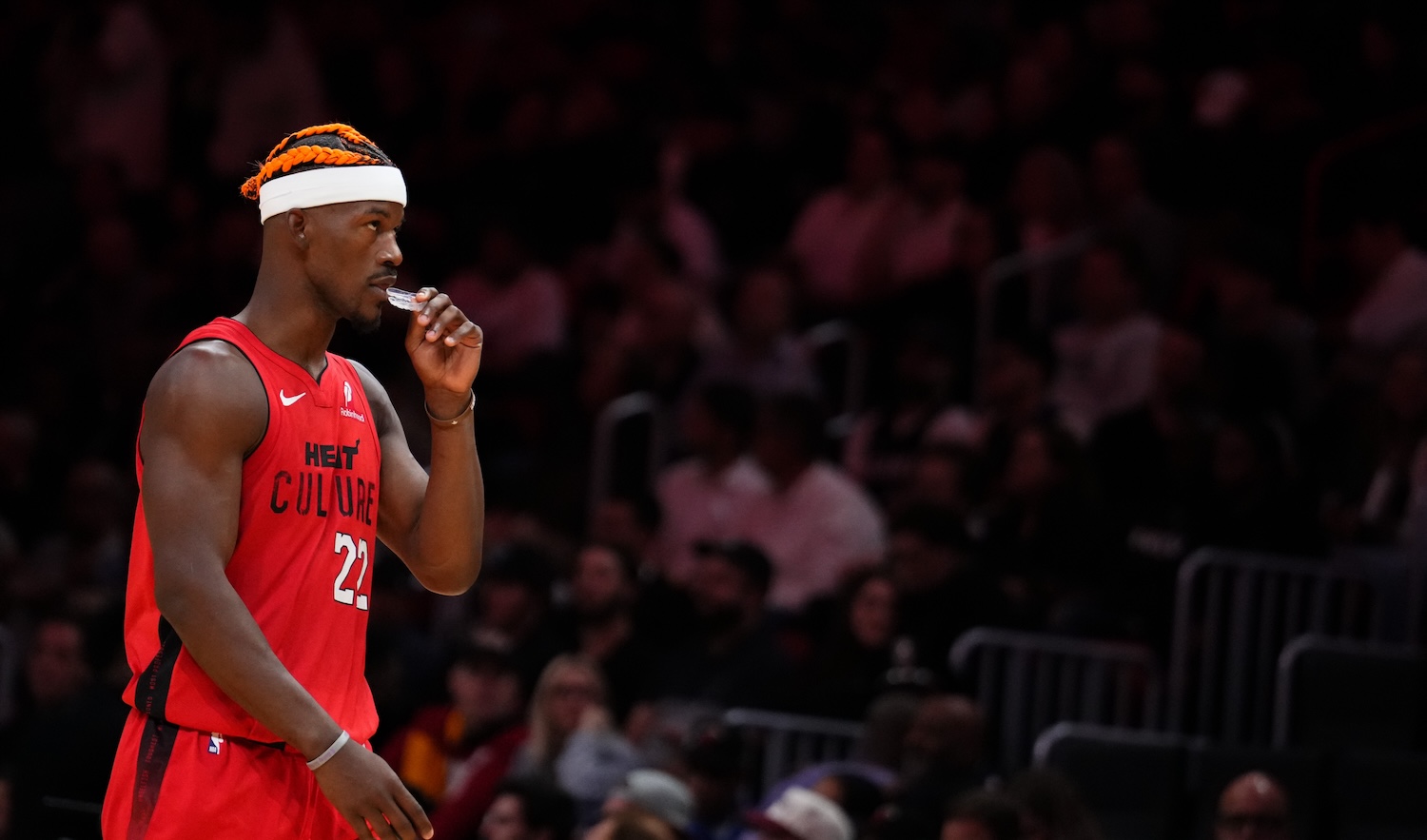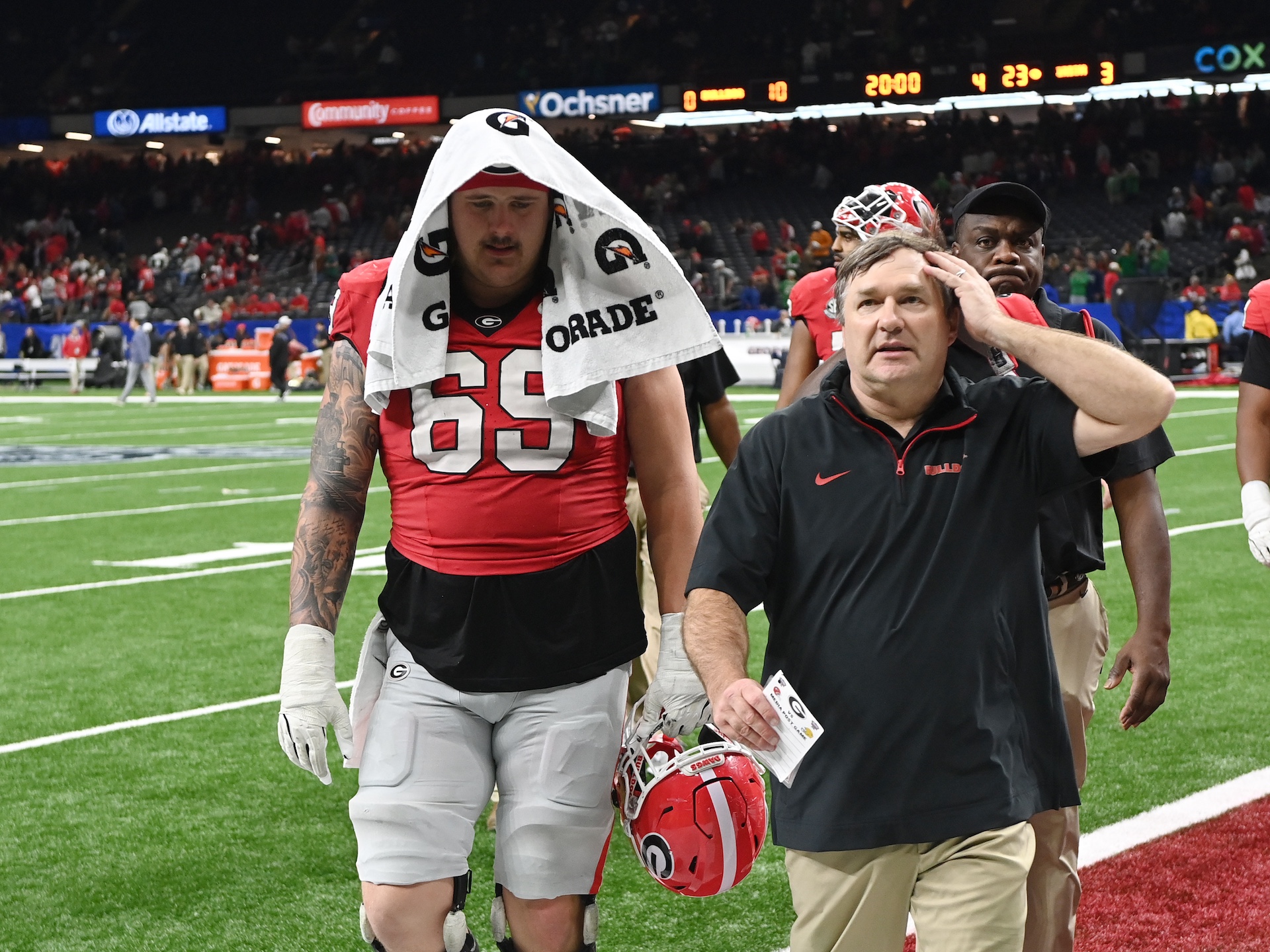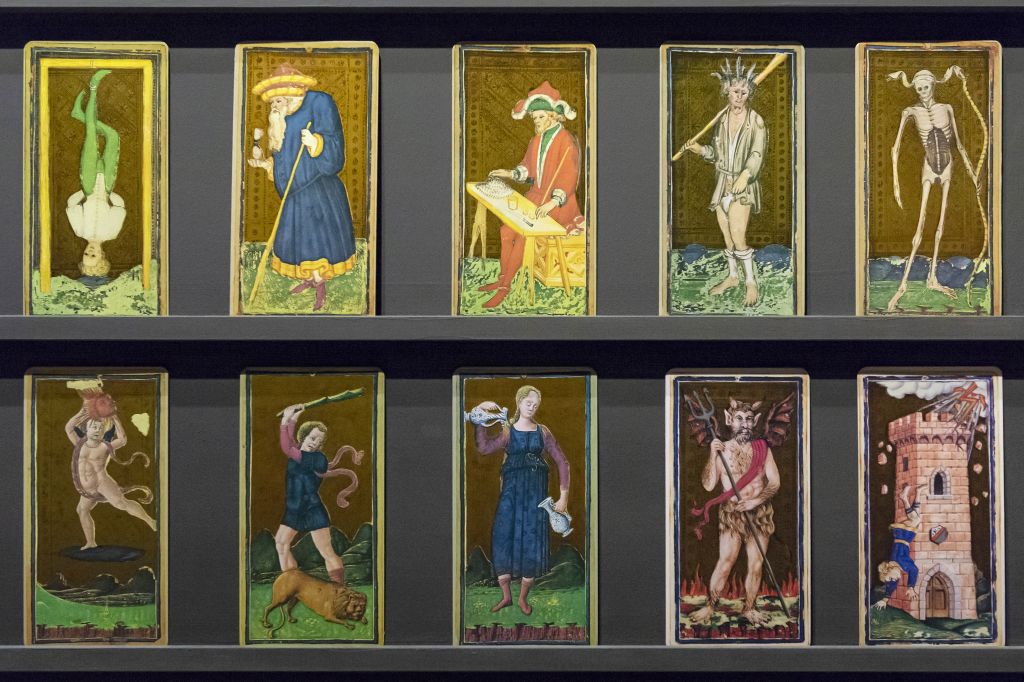That an NFL player should be suspended for wagering on football right as the league fully disrobes and hops into bed with the betting concerns, leaving the gameday experience awash with and seemingly subordinate to a never-ending series of ads urging folks to wager on football, is at least a little funny. Maybe "funny" is not quite the right word. Ironic? Fitting? Inevitable? Yes to all, but more than anything else it's telling. In dropping the hammer on Calvin Ridley the league made perfectly clear where its priorities lie.
Ridley, 27, was suspended indefinitely and for a minimum of one full season for placing three bets on NFL games through a mobile betting app last November. The Falcons WR is not allowed to apply for reinstatement until February. Ridley reportedly cooperated with the league's investigation and is seemingly resigned to the suspension (the NFLPA can file an appeal within three days), though his immediate public reaction was along the lines of c'mon, it's not that serious.
I bet 1500 total I don’t have a gambling problem
— CALVIN RIDLEY (@CalvinRidley1) March 7, 2022
I know I was wrong But I’m getting 1 year lol
— CALVIN RIDLEY (@CalvinRidley1) March 7, 2022
Ridley only played the first five games of last season before going on the non-football injury list to focus on his mental health. It was during that time away from the Falcons that he placed the bets—on a trip to Florida, where he reportedly used the Hard Rock Sportsbook App to place three separate parlay bets, all including the Falcons to win, which they did. (That app was shut down in Florida in December by a federal judge; I hope Ridley was at least able to cash out.)
How did the NFL find out about this? Ridley, much like our own Lauren Theisen, should have read the fine print a little closer. The Hard Rock app's terms of service are pretty clear on this: "No professional athlete may directly or indirectly wager or bet on a sporting event if the wager is based on any sport or athletic event overseen by the athlete’s sports governing body." Every other betting app has similar language. Hard Rock notified Genius Sports, which serves as the NFL's distributor of live data to media companies and gambling markets and also handles related compliance issues. Genius then told the NFL, and here we are.
The sportsbooks are contractually and legally required to be this vigilant in monitoring and reporting instances of league employees placing bets, but more than anything it's self-interest. An oddsmaker needs its ass fully covered if there's even the possibility of someone wagering with inside info—the lines must be sacrosanct to maximize the house's profit—and if one person has that info, others may as well.
To be clear, there's no reason to think Ridley was involved in anything nefarious. Point-shaving is the NFL's biggest nightmare, but in the statement announcing Ridley's suspension the league said it "uncovered no evidence indicating any inside information was used or that any game was compromised in any way. Nor was there evidence suggesting any awareness by coaches, staff, teammates, or other players of his betting activity." This is what matters to the NFL, and it's really all that matters. Some huge portion of the popularity of the NFL (and all sports, really) is due to betting. This was the case long before betting was legal in this country. And it only holds as long as bettors think the games are on the up-and-up. If it came out that games were fixed, both the sportsbooks and the NFL would stand to lose amounts of money that end in "illions" and do not start with "M"; the bookies in handle, and the league, eventually, on the trickle-down indicators of its massive popularity, like TV money. I'm not one for conspiracy theories—I do not find this convincing—but, gun to head, do I think the NFL would announce that a player had been fixing games if it didn't have to? Not really.
Regardless, that's what we're talking about here, and that's why the league brought the hammer down on Ridley with a suspension lengthier than those it has previously imposed for PEDs or cheating or any number of felonies. "Integrity" is the key word here, not because the NFL thinks integrity is inherently good but because integrity matters to Vegas. Go ahead and read "integrity" as "profitability."
"This is the responsibility of every player, coach, owner, game official, and anyone else employed in the league," Roger Goodell said in his letter to Ridley. "Your actions put the integrity of the game at risk, threatened to damage public confidence in professional football, and potentially undermined the reputations of your fellow players throughout the NFL."
Ridley, who appears to have made some harmless bets, is being made an example of, because there's a lot of money at stake here. Money is why your Sunday viewing experience is a nonstop assault of ads for gambling apps, and money is why those apps will do anything to entice you to sign up with them, and money is why the NFL wants you very much to believe that, while betting is cool and fun and you should definitely be doing it, their guys aren't.





